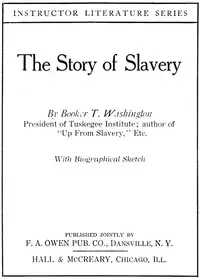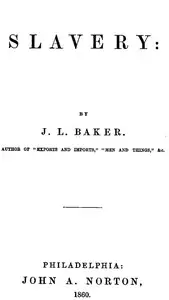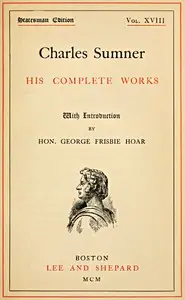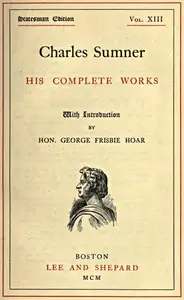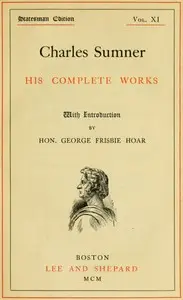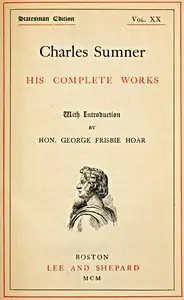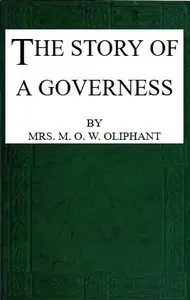"White Slavery in the Barbary States" by Charles Sumner is a historical exploration into the harsh realities faced by white slaves in the Barbary States, especially Algiers. Sumner throws light on this brutal system where Christians were forced into servitude. The book probably wants to connect this historical event with struggles for freedom happening at the same time as when Sumner was writing. From the very beginning, Sumner makes it clear that white slavery was an atrocity, using detailed stories and historical context to show just how cruel it was, and making readers think about other unfair situations happening during his own time. He looks at the Barbary States themselves, explaining how things like power, war, and trade led to Christians being enslaved. The start of the book sets the stage for a thoughtful look at where this practice came from, what it led to, and hints at Sumner's bigger goal of standing up for what is right and fighting for freedom for all.

White Slavery in the Barbary States
By Charles Sumner
Discover a forgotten history where Christians unjustly toiled under the whip in North Africa, revealing a shocking tale of human suffering and a fight for freedom.
Summary
About the AuthorCharles Sumner was an American lawyer, politician, and statesman who represented Massachusetts in the United States Senate from 1851 until his death in 1874. Before and during the American Civil War, he was a leading American advocate for the abolition of slavery. He chaired the Senate Foreign Relations Committee from 1861 to 1871, until he lost the position following a dispute with President Ulysses S. Grant over the attempted annexation of Santo Domingo. After breaking with Grant, he joined the Liberal Republican Party, spending his final two years in the Senate alienated from his party. Sumner had a controversial and divisive legacy for many years after his death, but in recent decades, his historical reputation has improved in recognition of his early support for racial equality.
Charles Sumner was an American lawyer, politician, and statesman who represented Massachusetts in the United States Senate from 1851 until his death in 1874. Before and during the American Civil War, he was a leading American advocate for the abolition of slavery. He chaired the Senate Foreign Relations Committee from 1861 to 1871, until he lost the position following a dispute with President Ulysses S. Grant over the attempted annexation of Santo Domingo. After breaking with Grant, he joined the Liberal Republican Party, spending his final two years in the Senate alienated from his party. Sumner had a controversial and divisive legacy for many years after his death, but in recent decades, his historical reputation has improved in recognition of his early support for racial equality.



